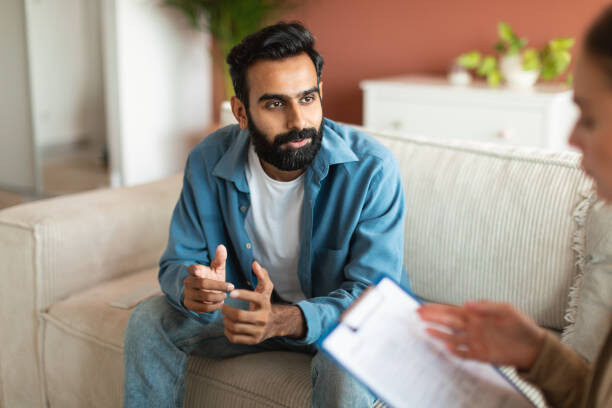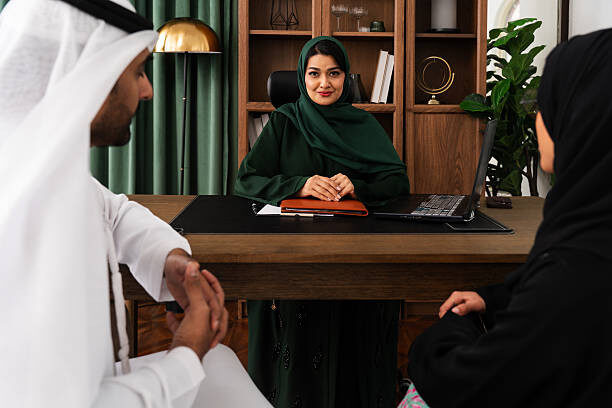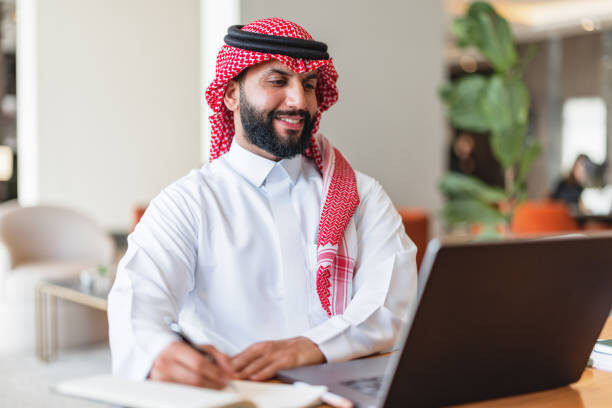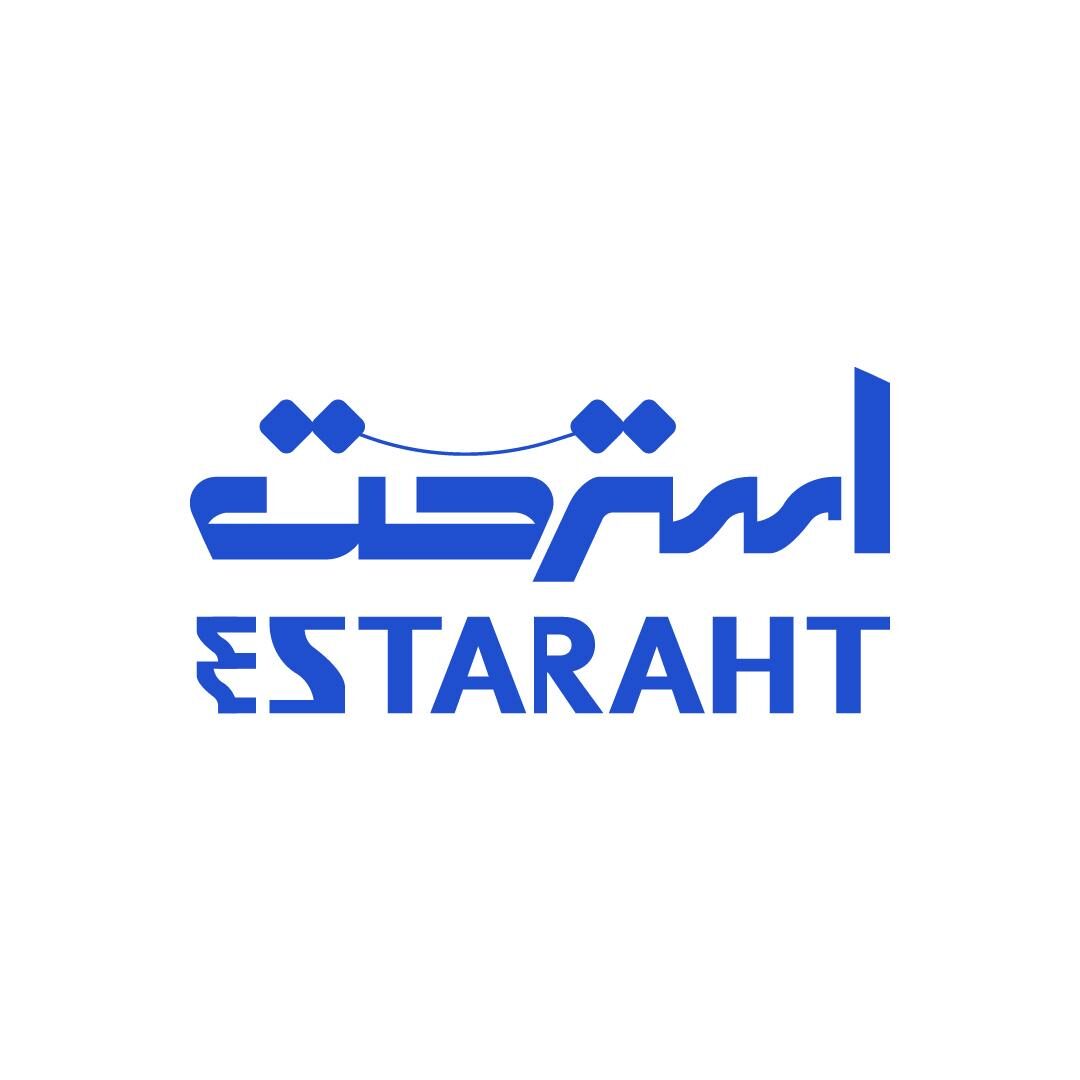Imagine this: It’s a Wednesday evening in Salmiya. You’ve wrapped up work, eaten dinner, and scrolled through a dozen WhatsApp groups, but your mind won’t rest. There’s this heaviness in your chest, a mental noise you can’t quiet. You think, “I don’t need a hospital… I just need someone to talk to who gets it.”
Now here’s the real question: Can you actually find proper online therapy in Kuwait, in Arabic, without leaving your home?
Yes, you can.
And it’s not about messaging a stranger on Telegram or downloading a vague “mental health” app with soft colors and zero context. We’re talking about real sessions. With licensed Arab therapists. Done through private, encrypted voice or video calls. Booked in minutes, from your phone.
This article is your shortcut. We’ll cover what Kuwait allows, what your options are, and why more people are choosing apps like Estaraht to speak to someone not someday, not next week, but tonight.
Let’s start with the basics: is it even legal?
Does Kuwait support online therapy legally?
Here’s the short answer: Yes, Kuwait allows telemedicine, including mental health services.
But let’s unpack that in a way that actually helps you decide what to do next.
Over the past few years, Kuwait’s Ministry of Health has quietly expanded access to remote care. It started with tele-consultations for general medicine, and mental health soon followed.
When the Kuwait Center for Mental Health launched its support hotline (+965 2462 1770), it was more than a crisis service. It was Kuwait saying: “We recognize emotional pain, and we’ll meet you where you are, even if that’s your living room.”
Of course, public services come with limitations:
- Set hours (usually 9 AM–5 PM)
- Overwhelmed lines
- One-off consultations, not follow-up therapy
- Often more advisory than therapeutic
That’s where private platforms like Estaraht step in. Not instead of, but alongside what the government offers.
Think of it this way: The state builds the road. Estaraht builds the car. It gives you the ability to move, now, not just wait for a ride.
And unlike apps that dance around legal gray zones, Estaraht follows strict privacy and therapist licensing protocols. Every session is encrypted, anonymous (you don’t even need your real name), and conducted by therapists vetted for regional experience who are based in Europe but trained to work with Gulf clients.
So yes, Kuwait allows it. But the bigger question is, are you ready to allow yourself this step?
Best Arabic therapy platforms available in Kuwait
If you’re looking for therapy in Kuwait, you’re probably not searching for complexity. You’re not after long forms, cold clinics, or endless scrolls through therapist profiles. You just want to talk. In Arabic. In private. Without pressure.
Let’s begin with the platform designed specifically for that.
Estaraht – Built by Arab expats, for Arab expats
Estaraht isn’t a crowded marketplace. It’s not a Western platform translated into Arabic. It’s a focused, culturally aware space where you can book a 45-minute session with a licensed therapist — no subscriptions, no matching delays, no paperwork.
What sets Estaraht apart for Kuwait users:
- Sessions are pay-per-session, with complete transparency and no hidden commitments.
- You’re anonymous by default — use a nickname, no ID or camera required.
- The experience is Arabic-first, not just translated, but designed for your context.
- Booking is immediate. You can speak with someone via chat, voice, or video — within minutes, not hours.
For users in Kuwait, where privacy and cultural familiarity matter deeply, Estaraht offers the fastest and most intuitive path to real support.
No long introductions. No overwhelming menus. Just one clear step toward feeling better.
Labayh (Saudi Arabia)
Labayh is a widely used app across the Gulf. It allows users to browse therapist profiles, choose formats (voice, video, or chat), and book anonymously.
- Strength: Well-known, flexible formats
- Limitation: Therapist availability varies; wait times can occur
Shezlong (Egypt)
One of the earliest Arabic mental health platforms, Shezlong, offers a broad range of specializations and therapists from across the Arab world.
- Strength: Large therapist network with various approaches
- Limitation: The app interface and booking system may feel outdated.
O7 Therapy (Egypt)
Positioned as a clinic-grade solution, O7 Therapy emphasizes quality assurance and a polished, professional user experience.
- Strength: High therapist credibility and well-reviewed sessions
- Limitation: Less flexibility for last-minute booking or anonymous access
Arab Therapy (Jordan / Saudi)
Arab Therapy combines a therapist network in the Middle East with GDPR-compliant operations in Europe. Sessions are available in chat or video formats.
- Strength: Strong privacy practices and bilingual support
- Limitation: Smaller pool of available therapists at any given time
Takalam (UAE)
Takalam blends mental wellness and therapy by offering assessments, coaching, and counseling in both Arabic and English.
- Strength: Multiple session formats and language options
- Limitation: Less focused on clinical therapy, more wellness-oriented
If you’re in Kuwait, here’s what you should know: You don’t have to wait weeks. You don’t need a diagnosis. You don’t have to explain yourself in English.
You just need a platform that understands the urgency, the privacy concerns, and the emotional nuance of the Arab experience.
That’s what Estaraht was built for — and why it might be the easiest first step toward real support.
What makes Estaraht different (and ideal for Kuwait users)
Here’s a little test: Open your phone. Type “Arabic therapy app.” Now scroll through the results.
What do you notice?
Most apps treat therapy like shopping. Pick your therapist. Pick a time. Fill a form. Wait. Get matched. Maybe they’re online. Maybe not.
It’s like booking a dentist. But you’re not booking a cleaning. You’re looking for someone to help you hold it together.
Estaraht flips the script.
It’s built for emotional urgency, not admin. Here’s how:
Anonymous by default
No real name. No ID. No awkward questions. You show up as you. Or as just a nickname. That’s enough.
In Kuwait, where privacy matters deeply, this isn’t a feature. It’s a necessity. Estaraht understands that.
Built in Arabic, not translated into it
Every screen, every button, every interaction is designed to feel like home. Not a foreign app awkwardly trying to sound local.
Estaraht doesn’t ask “What’s bothering you today?” in textbook Arabic. It meets you where you are with warmth, clarity, and understanding.
No subscriptions. Just one session. When you need it.
You’re not signing up for a monthly package. You’re not committing to ten sessions upfront. You’re saying: “I need to talk today.” And Estaraht says: “Yalla, let’s start.”
That’s it. A 45-minute session. Paid. No hidden fees. No upsells.
Therapists who speak your language literally and emotionally
Every therapist on Estaraht is licensed, experienced, and trained to work with Arab clients across the Gulf, including Kuwait. Some live in Europe. Some in the region. But they all understand your context, family, culture, shame, silence, and expectations.
They know what it means to say: “أنا ما أقدر أشرح لأحد.. بس مو قادر أتحمل أكثر.”
And they know how to respond.
So what makes Estaraht different?
Simple: It doesn’t treat therapy like tech. It treats it like a lifeline delivered in Arabic, on your terms, without friction.
And if you’re in Kuwait, this is likely the easiest first step you can take without stepping outside your comfort zone.
When should you consider online therapy, and when is it not enough?
One of the most common myths in the Arab world is that therapy is only for people who’ve “hit bottom.”
That’s not true.
You don’t need a breakdown or a diagnosis to benefit from talking to a therapist. You just need a moment where you say to yourself, “I can’t keep holding all of this alone.”
In this section, we’ll help you recognize when online therapy might help and when it’s essential to seek a different kind of support.
5 Signs it may be time to try online therapy
- You’re emotionally tired for no apparent reason: It’s not sadness, exactly. Not fear. Just a lingering exhaustion that doesn’t go away even after sleep or a day off.
- You’re finding it hard to sleep or focus: Whether it’s insomnia, early waking, or brain fog during the day, chronic stress often shows up in the body before we recognize it emotionally.
- You’re withdrawing from people: You find yourself cancelling plans, avoiding texts, and drifting into isolation, not because you want to, but because you’re overwhelmed.
- You’ve tried journaling, mindfulness, or talking to friends, but it’s not enough: Self-help tools can be helpful, but sometimes they’re not designed to handle what’s really going on beneath the surface. That’s where a trained therapist makes a difference.
These are all situations where Estaraht can help.
No paperwork. No pressure. Just a 45-minute private session in Arabic, booked when you need it, not when an app finds you a match.
When online therapy might not be the right choice
There are moments when therapy apps aren’t enough, not because they’re bad, but because the situation is urgent.
Seek emergency help in Kuwait if:
- You’re thinking seriously about harming yourself or someone else
- You’re experiencing hallucinations, confusion, or loss of touch with reality
- You need immediate psychiatric or medical intervention
In these cases, you should call 112 or visit the nearest hospital. You can also contact the Kuwait Center for Mental Health at +965 2462 1770 during working hours.
Therapy is powerful, but it’s not a crisis tool. And a good therapist, including the ones on Estaraht, will always guide you toward the help that fits your situation.
Therapy isn’t about being “sick.” It’s about being honest.
The truth is, many of the people who use Estaraht aren’t in crisis. They’re just tired of bottling everything up. They’re parents, professionals, expats, newlyweds, or college students, all trying to make sense of their emotions in a fast-moving world.
Therapy, when offered safely and in Arabic, becomes a space to process, reset, and move forward.
And if that’s what you’re looking for, you can start today without leaving your house, your comfort zone, or your language.
How to get started with online therapy in Kuwait
So you’ve decided to try therapy, now what?
This is usually the point where most people get stuck. Not because they changed their mind, but because the process itself feels overwhelming.
Should I choose video or audio? Do I need a referral? How do I know if the therapist is legit? What if I change my mind mid-session?
These are all valid questions. But getting support shouldn’t feel like applying for a visa. Let’s break it down, especially for users in Kuwait who are considering Arabic therapy for the first time.
Step 1: Choose a platform that fits your needs and your language
Most therapy apps today are global. That sounds good until you realize your options are limited to therapists in different time zones who don’t speak Arabic, or worse, speak it like it’s their third language.
That’s why platforms like Estaraht are built differently.
From the moment you open the app, everything, the layout, the language, the tone, is designed for Arab users. There’s no awkward cultural mismatch. No “lost in translation” advice. Just a space that feels familiar.
And in Kuwait, where cultural context matters just as much as credentials, that kind of fit isn’t optional; it’s essential.
Step 2: Decide how you want to connect
Most platforms offer three modes of communication:
- Video sessions (closest to traditional therapy)
- Voice-only sessions (for those who prefer not to be on camera)
- Live chat sessions (ideal for introverts or people easing in)
Estaraht offers all three and lets you choose without pressure. Some users start with chat to feel things out. Others prefer voice so they can speak freely without worrying about eye contact or body language.
Whatever your comfort level, you’re not forced into one format. You decide how close or distant the session feels.
Step 3: Book your session (without the red tape)
This is where most platforms complicate things: You sign up. You fill out a form. You wait for a match. You email support. You refresh the page.
Estaraht skips the bureaucracy.
You:
- Open the app
- Pick a time
- Choose a therapist
- Pay for a single 45-minute session.
- Get a reminder, then show up anonymously if you like
No monthly plans. No forms. No guilt if you don’t come back next week.
And yes, the therapist is licensed. Every one of them. That’s non-negotiable.
Step 4: Protect your privacy from the start
In Kuwait, privacy isn’t a luxury. It’s a dealbreaker.
Estaraht was built around that. You don’t need to show your face. You don’t need to use your real name. And you don’t need to tell anyone you’re using the app.
From login to session, everything is encrypted and anonymous by default so you can finally speak freely, without the fear of being seen.
You don’t need to figure it all out today. You just need to start.
Online therapy in Kuwait isn’t a trend. It’s a quiet shift from silence to dialogue, from stigma to support.
And if you’re ready to test the waters, even just once, Estaraht gives you a soft place to land. No pressure. No packages. Just one clear path to someone who listens in your language, on your terms.
Final Words: Online therapy in Kuwait is finally simple if you choose the right door
Let’s be honest: Mental health support hasn’t always felt accessible in Kuwait. It’s either been too public, too clinical, or just too complicated. But that’s changing.
Today, you can speak to a licensed Arab therapist from your phone in Arabic, in private, without leaving home. That’s not a plan. That’s what Estaraht offers right now.
And the best part? You don’t have to commit to a complete program, open your camera, or explain your life story in perfect words. You just have to show up for 45 minutes and let someone hold space for what you’ve been carrying.
So if you’ve been thinking about therapy, but something always stopped you…
Too expensive. Too public. Too foreign. Too soon.
Estaraht was designed for precisely that hesitation and gently removes it.
Ready when you are.
No pressure. No labels. Just a private space to breathe again. Explore Estaraht →














